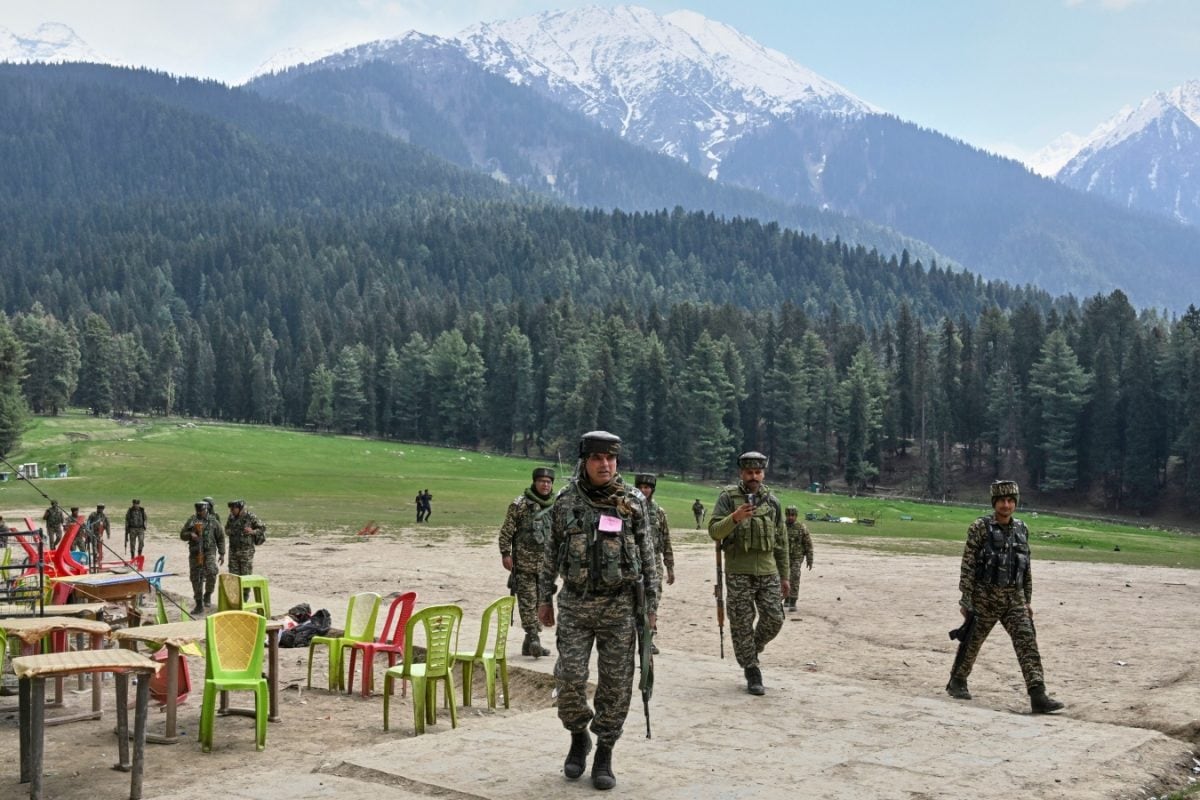

The April 22, 2025, terrorist attack in Pahalgam, which resulted in the deaths of 26 civilians, was allegedly orchestrated by Pakistan's Inter-Services Intelligence (ISI) and the Lashkar-e-Taiba (LeT) terror group, under the direction of Pakistan's political and military leadership. Security establishment sources describe it as an LeT-ISI project akin to the 26/11 Mumbai attack.
The ISI reportedly gave specific instructions to Lashkar commander Sajid Jutt, based in Pakistan, to deploy only foreign terrorists operating in Jammu and Kashmir (J&K), ensuring minimal local involvement to maintain secrecy. The attack was led by Sulaiman, a suspected former Pakistani special forces commando who had trained at LeT's Muridke hub in Pakistan's Punjab before crossing the Line of Control (LoC) into the Jammu region in 2022. Satellite phone analysis placed Sulaiman in the Tral forest on April 15, 2025, suggesting he was near the attack site in Baisaran for about a week before the incident. Sulaiman was also allegedly involved in the April 2023 attack on an Army truck in Poonch, which killed five soldiers.
The victims of the Pahalgam attack were primarily Hindu tourists, although a Christian tourist and a local Muslim were also killed. The Resistance Front (TRF), believed to be an offshoot of LeT, initially claimed responsibility, stating the attack opposed non-local settlement in the region following the revocation of Kashmir's special status. However, the TRF later denied involvement, possibly due to backlash from Kashmiris and international condemnation.
The attack prompted a strong response from India, including the suspension of the Indus Waters Treaty and the launch of Operation Sindoor on May 7, 2025, targeting alleged terrorist camps in Pakistan. Pakistan retaliated with drone and missile strikes around Indian-administered Kashmir. The Financial Action Task Force (FATF) condemned the Pahalgam attack, asserting it could not have occurred without financial backing, and highlighted the need for unified global action against terrorism.
In the aftermath, the National Investigation Agency (NIA) arrested two local Kashmiris for allegedly providing food and shelter to the Pakistani terrorists. The NIA's investigation revealed the limited role of the arrested locals, who claimed to have provided assistance in exchange for money and denied knowledge of the terrorists' plans.
The Pahalgam attack has had broader implications, including increased tensions between India and Pakistan. External Affairs Minister S Jaishankar described the attack as an act of economic warfare aimed at destroying tourism in Kashmir. The attack also exposed vulnerabilities in India's intelligence and response mechanisms, prompting calls for systemic introspection and reform.